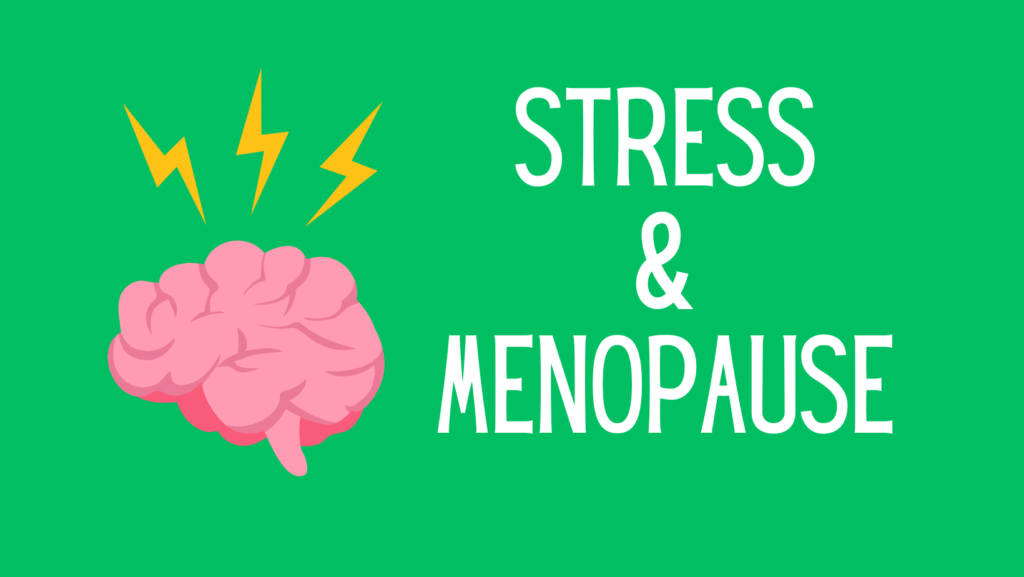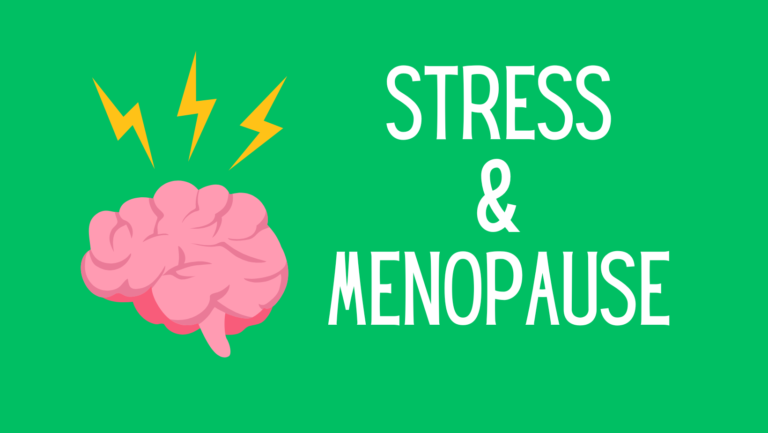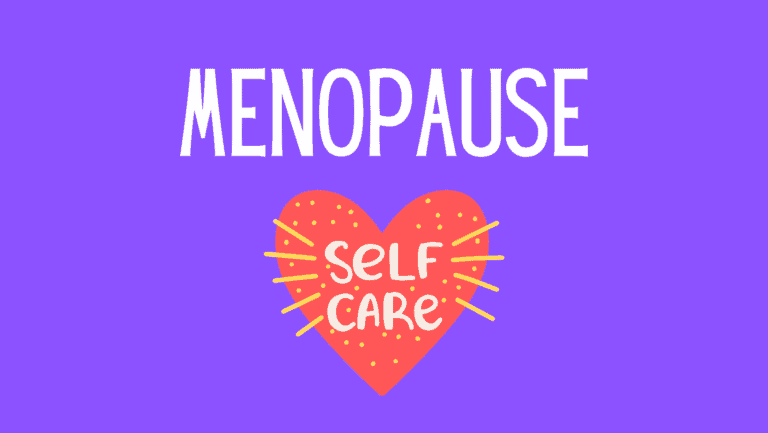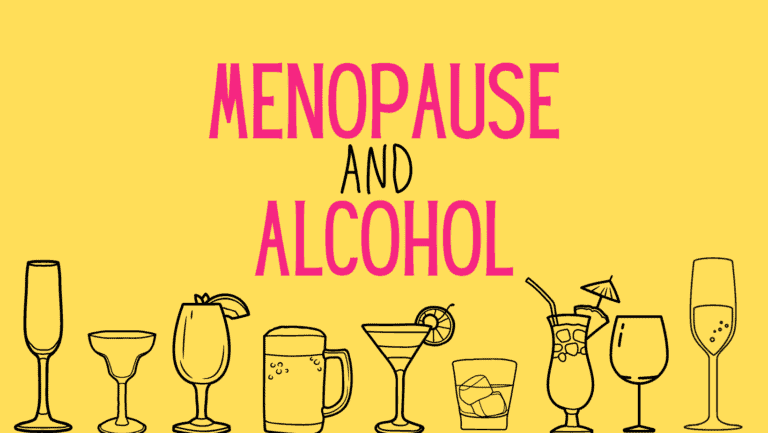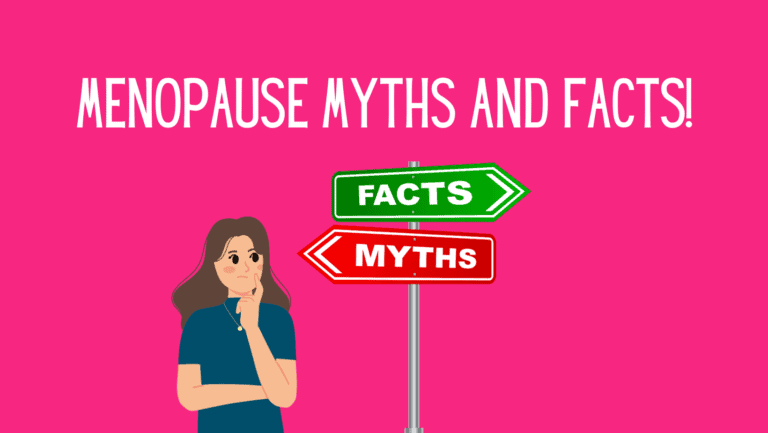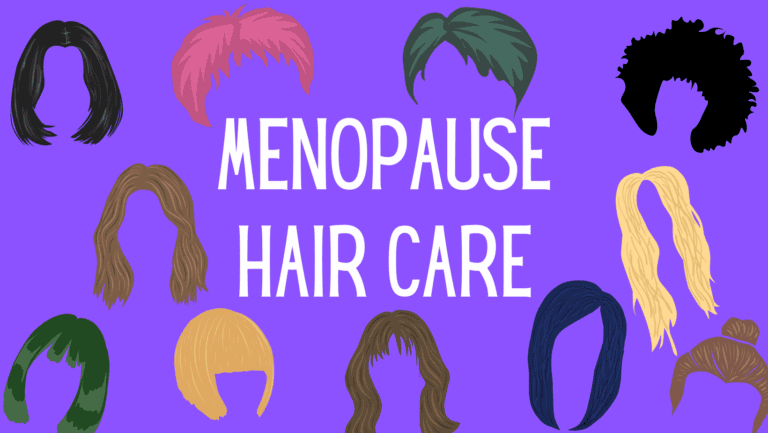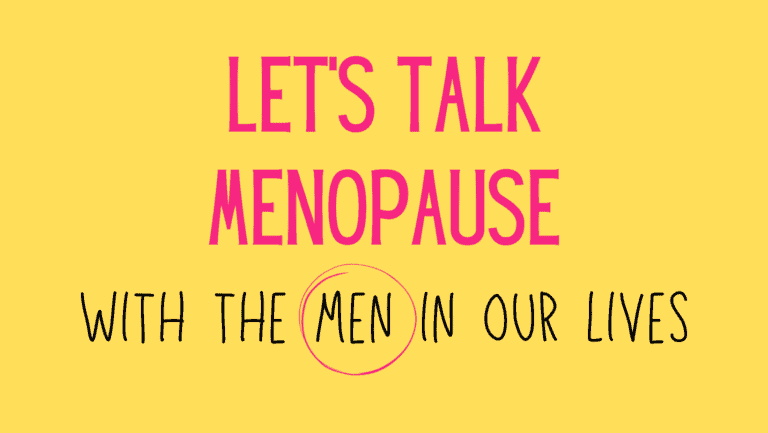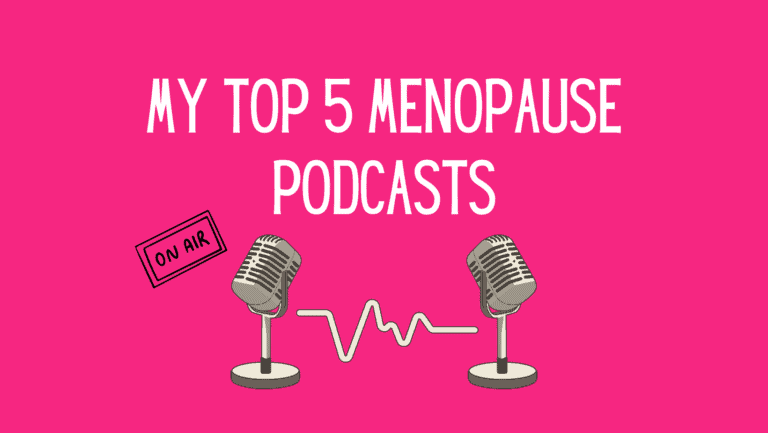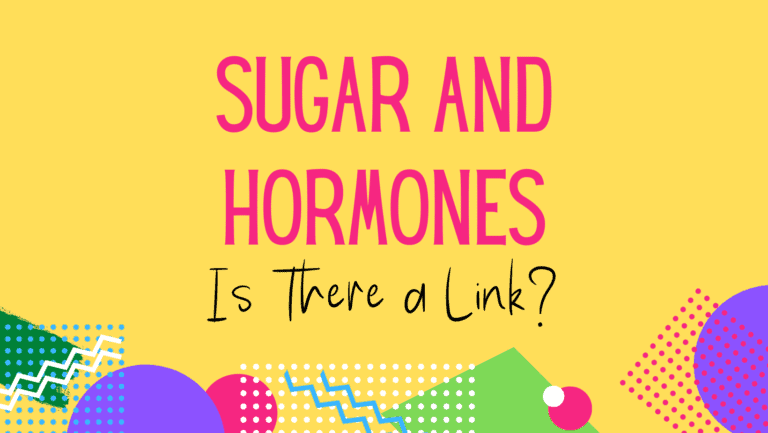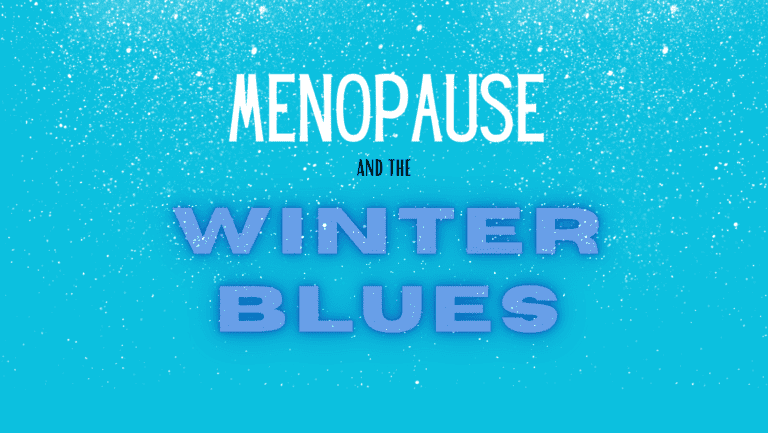How do stress and menopause impact your experience during this new phase of your life, and what can you do about it?
In this post, I want to look at the pivotal role of stress during menopause and perimenopause and show what practical techniques to ease this transition.
From understanding hormonal changes to adopting effective stress-reduction strategies, this straightforward guide will navigate you through managing stress and menopause symptoms with a bit more confidence.
Key Takeaways
Chronic stress exacerbates menopausal symptoms such as hot flushes (flashes), memory issues, and sleep disturbances.
Management of hormonal fluctuations through Hormone Replacement Therapy (HRT), natural alternatives, supplements, and lifestyle changes like diet and physical activity is key to alleviating menopausal symptoms and maintaining overall health.
Cognitive and emotional well-being during menopause benefits from mind-body practices, adequate sleep, and professional support for severe symptoms, while nurturing relationships and effective communication can mitigate stress’s impact on daily life.
Understanding Stress and Its Role in Menopause

Imagine the body as a finely tuned instrument, with stress plucking at the strings of our well-being. The melody it plays can resonate deeply during the menopausal transition, often amplifying menopause symptoms and playing a dissonant tune.
Chronic stress can act as a relentless conductor, leading to more frequent and intense hot flashes, memory issues and brain fog, and sleep disturbances. We may find ourselves in a cacophony of stress levels that can feel overwhelming, leaving us yearning for harmony amidst the crescendo of menopausal symptoms.
The composition becomes even more complex when we consider estrogen, the hormone that once helped many women to soften the impact of stress, now dwindling in abundance.
As estrogen levels wane, the body’s ability to mitigate the effects of stress diminishes, leaving women more susceptible to the physical and emotional strains of menopause.
It’s a delicate balance, one that requires attention and care to ensure that the symphony of our well-being is not overwhelmed by the notes of stress.
The Science Behind Stress Hormones
When stress strikes, it orchestrates a surge of stress hormones, with adrenaline and cortisol taking centre stage.
These two hormones, produced by our adrenal glands, conduct a powerful response throughout the body, altering heart rates and hormonal secretions in a bid to prepare us for the ‘fight or flight’ scenario.
The nervous system is the maestro, cueing the release of these hormones in moments of perceived danger, a primal tune that has played throughout human history.
Yet, there’s an unsung hero in this ensemble—estrogen. This hormone can temper the production of cortisol, offering a layer of protection against the relentless rhythm of stress.
But as menopause approaches, our levels of estrogen begin to fade, and with it, our natural defence against the crescendo of cortisol.
It’s as if the protective melody that once harmonized our stress response is now missing notes, leaving us more exposed to the effects of chronic stress.
How Chronic Stress Affects Menopause
Chronic stress weaves itself into the fabric of menopause, pulling at the threads of our well-being.
It may hinder our adrenal glands’ ability to produce essential hormones such as estrogen and progesterone, thereby shifting the balance of our hormonal tapestry and influencing menopausal symptoms.
It’s an intricate pattern, one where high cortisol levels and stress hormones interlace with the natural progression of the menopausal transition, potentially leading to an earlier onset of menopause.
The persistence of stress can fray the edges of our daily lives, making it challenging to focus on work or maintain the harmony of home life.
But it’s important to remember that while stress may mimic the patterns of menopause, it is not the reason menopause is now here.
The symptoms that stress exacerbates are similar to those of menopause, a reflection of the body’s response to the demands placed upon it.
As we navigate through these tangled threads, it becomes crucial to untangle the knots of stress, allowing us to move forward with clarity and strength.
Managing Hormonal Fluctuations

Amidst the ride that is menopause, managing hormonal fluctuations is not easy; it is delicate, precise, and essential for balance.
Menopause is officially diagnosed when fluctuating hormone levels reach a point where menstruation ceases for one year or more.
These fluctuations can trigger a range of menopausal symptoms, including:
low mood
sore breasts
All these symptoms demand careful management to ensure our well-being continues to thrive.
To maintain this balance, we can turn to a repertoire of treatments and lifestyle changes. Whether it is embracing hormone replacement therapy or exploring natural alternatives and supplements, each offers a chance to conduct our hormonal health with greater control and finesse.
Yet, as with all things in health, it is vital to consider the full score of options and their potential impacts, ensuring we make the choices that best resonate with our unique needs and circumstances.
If at any point you want to discuss options, please do speak to a health professional who specialises in women’s health.sore
Hormone Replacement Therapy: Pros and Cons
Hormone Replacement Therapy (HRT) stands as a prominent force in the management of menopausal symptoms. It can alleviate the intense fluctuations of menopause, offering relief from the heat of hot flashes, the uncertainty of mood swings, and the restlessness of sleep issues.
HRT may also play a vital role in stress alleviation, as it aims to stabilize the erratic hormone levels that contribute to heightened stress during menopause.
However, the decision to initiate HRT requires a careful duet between the patient and the healthcare provider.
It is essential to discuss the use of HRT in the context of your personal health profile, weighing its potential effects on blood glucose levels and stress against the benefits it may provide.
For those still navigating the ebbs and flows of their menstrual cycle, a combination of estradiol and progesterone can be particularly helpful. It worked for me and I have to admit that within a few weeks of taking my combination 99% of my symptoms went away.
As with all medical decisions, the choice to use HRT should be in line with your own overall health and wellness goals.
Natural Alternatives and Supplements
Shifting our focus to the natural world, we find a wealth of alternative therapies and supplements that may address hormonal issues related to menopause.
From the ancient wisdom of Chinese herbal therapy to the potential of Nigella sativa, these natural solutions offer a wide variety of options for those seeking harmony without the use of conventional medicines.
Supplements, rapidly gaining popularity, are becoming a go-to for people looking to tackle the symptoms of perimenopause, and menopause and promote general well-being.
Yet, while the allure of natural solutions is strong, it is essential to approach these remedies with a discerning ear.
Not all supplements can regulate hormones, but many can address the symptoms associated with perimenopause.
It is important to remember that dietary supplements are a blend of vitamins, minerals, herbs, and other ingredients, each with its own scientific backing and health benefits.
Balancing hormones during perimenopause is a journey, one that can be supported by the right combination of supplements and lifestyle choices, but it is a path that must be navigated with care and evidence-based decisions.
There will be some supplements that will help, but there can be supplements that exacerbate the problem. PLEASE do your research.
Lifestyle Adjustments for Stress Reduction
As we ride the rollercoaster of the menopausal transition, lifestyle adjustments serve as the anchor that can ground us amidst the waves of stress.
In the following paragraphs, we’ll explore how the food we eat and the practices we embrace can act as the rudder, guiding us towards calmer waters.
By fine-tuning our diet to ensure balanced blood sugar levels and incorporating mind-body practices into our routine, we can reduce stress and enhance our mental wellbeing.
Diet and Nutrition for Balanced Blood Sugar Levels
At the heart of our menopausal journey lies the importance of maintaining blood sugar levels balanced through diet.
Embracing foods with a low glycemic index and reducing refined sugars and processed foods can act as a stabilising force, helping to regulate insulin and other hormone levels.
By eliminating added sugars, we not only tune our insulin response but preventative against insulin resistance, a common challenge during menopause.
Incorporating plenty of fruits, vegetables, and whole grains into our daily diet can boost our health, supporting not only blood sugar management but also reducing the risk of heart disease post-menopause.
Healthy fats, such as those found in coconut and olive oils, can fine-tune hormones that regulate appetite and insulin response, contributing to a balanced composition of health.
By avoiding overeating and including fibre-rich foods, we can regulate insulin and other hormones, potentially aiding in weight management—a critical aspect of maintaining our health as we navigate the menopausal transition.
We all know that steering clear of unhealthy foods is essential in ensuring a smooth journey through this phase of life. But we also know it is not easy.
When I was at my most anxious, forgetting things, my bones hurt and I would feel overwhelmed, I turned to sugar and alcohol. I would crave the sugar and use the wine to help me sleep.
Then I became sleep deprived and over weight, so my stress levels just went up and up, it was a never ending cycle.
Incorporating Mind-Body Practices
In the realm of stress reduction, mind-body practices such as yoga and tai chi emerge as powerful instruments, harmonizing our internal rhythms with the external world.
Relaxation techniques, from rhythmic breathing to progressive muscle relaxation, offer a reprieve from stress, effectively lowering the volume of anxiety and tension experienced during menopause.
These practices, when accompanied by music or guided imagery, can enhance our stress relief efforts, providing a soothing melody that calms the mind and nurtures the soul.
Positive self-talk and affirmations can be great, reinforcing our ability to manage stress and maintain a positive outlook throughout the menopausal transition.
By adopting a healthy lifestyle that includes mind-body practices, we support not only our physical health but also our mental wellbeing, allowing us to move through menopause with a sense of inner peace and balance.
Physical Activity and Menopause Management

Physical activity is the rhythm that keeps the body moving, an essential element in managing menopause symptoms and maintaining overall health.
Regular exercise has been shown to stabilize hormonal shifts and lessen the intensity of menopausal symptoms such as hot flashes, night sweats, and mood swings.
Physical activity offers a natural stress reliever, crucial for maintaining emotional health during this phase of life. Exercise is one of those things that I know is the right thing to do but is always the last thing I want to do.
If you feel like me it can be more stressful trying to fit a new exercise routine into your already brain fogged mind. It’s OK to feel rubbish about exercising but even a brisk walk will help so much and you can usually fit that into your day.
Weight-bearing exercises and strength training are particularly significant for menopausal women, as they support bone health by maintaining bone density—a crucial consideration given the increased risk of osteoporosis during this time.
Aerobic exercise, on the other hand, is beneficial for heart health, improves circulation, and can reduce the heightened risk of cardiovascular issues faced during menopause.
Physical activity, in all its forms, is a symphony for the body, a melody that promotes well-being and vitality.
I am not going to say I have got this locked down, I haven’t but I do know that when I exercise I always feel less stressed…
Finding the Right Exercise Balance
Finding the right exercise balance can be very tricky!
Selecting physical activities that are enjoyable and aligned with your fitness level is crucial during menopause, as it promotes consistency and long-term adherence to a workout routine.
Whether it’s the gentle flow of yoga or the rhythmic steps of a dance class, the key is to find exercises that resonate with the individual, encouraging a lifelong love for movement.
Moderate-intensity exercise is recommended, as it provides the body with a manageable challenge without overtaxing the system.
It’s about striking the right chord, one that fosters health and enjoyment without leading to burnout or injury.
By finding this balance, menopausal women can establish a safe and sustainable exercise habit that supports their journey through menopause and beyond.
Mental Health Considerations

The psychological impacts of menopause are often overshadowed by physical symptoms yet equally important.
Hormonal changes can lead to a range of psychological effects, including irritability, forgetfulness, withdrawn and low self-esteem, all of which can strike a dissonant chord in our mental and physical health.
The stress hormone cortisol, when chronically high, can lead to memory issues and weaken the immune system, further complicating the menopausal transition.
So we need to take being stressed as seriously as we take the rest of our symptoms.
Incorporating oily fish into our diet, for example, can help prevent mood disorders such as depression and anxiety, which are not uncommon during these years of change.
Cognitive behavioural therapy, counselling, and mindfulness also offer potential treatments for menopause-related psychological impacts, providing us with a variety of tools to compose a more serene mental state.
There is a lot of information out there to help you but I have added some resources below that really worked for me.
The Importance of Good Sleep
Sleep disturbances during menopause, caused by night sweats, hot flashes, and mood changes, can lead to lots of health issues such as obesity and diabetes, while also intensifying irritability and anxiety.
These disruptions can exacerbate mental health issues like depression, forgetfulness and lack of concentration, making it all the more crucial to prioritize restful sleep.
To improve sleep quality, we may need to adjust our evening routines: reducing blue light exposure at night, engaging in regular exercise, and establishing consistent sleep patterns can all contribute to a more restful slumber.
If these efforts do not bring the tranquillity needed for sleep, professional support, such as cognitive behavioural therapy for insomnia, can be an effective treatment for women in menopause struggling with sleep disturbances.
I have found that keeping the room cool helps, using a cooling pillow helps and I use the relaxing sounds from brain.fm to help me drift off.
Seeking Professional Support
When perimenopausal symptoms significantly disrupt daily life, including severe mood changes or persistent hot flashes, it’s time to seek guidance from medical professionals.
Home and herbal remedies may offer some relief, but there are instances when the expertise of healthcare providers becomes essential for managing stress and menopause-related symptoms.
Medical attention, ranging from a simple conversation with a GP to considering prescribed anti-depressants or sedatives, may be necessary when other interventions have fallen short.
It is important to discuss all available treatment options, including those beyond anti-depressants, unless a clinical diagnosis of depression is present.
It’s worth noting that not all doctors are adequately trained in all things menopause. That was the reason for starting this blog. Some doctors will fob you off and misdiagnose you. Be confident in putting across your opinion and get your symptoms checked properly.
The Impact of Stress on Relationships and Daily Life
Physical changes can impact a woman’s self-image and confidence, sending ripples into her interactions and overall quality of life.
The waves of this impact can be profound, affecting mental health and how we relate to others. Intimacy and sexual activity can also ebb during this time, straining relationships and, in some cases, leading to feelings of distance and, unfortunately, marital breakdowns.
Charting a course through these relational waters requires effective communication and a quest for understanding from family and friends, including the men.
By sharing our experiences and seeking support, we can bridge the gaps that stress may create, ensuring that our connections remain strong and supportive.
It’s about fostering a mutual understanding from everyone in our lives. I know it can be intimidating talking to the men in our life, but it will be worth it to work through this together.
Navigating Perimenopause and Beyond
High stress levels have been shown to correlate with a reduced age at natural menopause, underscoring the importance of managing stress effectively during this transitional time.
Perimenopause, the prelude to menopause, is marked by the ending of the menstrual cycle for 12 consecutive months, signalling the end of our reproductive years.
Factors such as stress levels, lifestyle habits, and personal health all contribute to the timing of this transition, influencing the mean age at natural menopause and potentially leading to early menopause.
It’s been found that persistently high levels of stress can reduce the mean age at menopause by approximately 5 months, highlighting the need for effective stress management strategies during perimenopause.
I still do not think it is a coincidence I started perimenopause when I was 38 and in the most stressful job, going through a divorce and raising two small children.
Summary
Throughout this post, we’ve looked at managing stress and menopausal symptoms, navigating through strategies for hormonal balance, lifestyle adjustments, mental health considerations, and support for relationships.
Regular physical activity emerges as a beacon, reducing stress and promoting better overall health, including improved sleep—a key player in orchestrating our well-being.
Building a support network, nurturing friendships, and maintaining a positive outlook can provide a sense of connection and warmth, buffering against the chill of stress.
Letting go of the reins on certain aspects of life, accepting what we cannot control, and adopting relaxation techniques like meditation or relaxation apps can all contribute to effective stress management.
Engaging in new hobbies and pursuits can act as a stress buffer, fostering a sense of excitement.
Ensuring adequate rest, consuming balanced meals, and avoiding alcohol as a coping mechanism are all part of a comprehensive approach to combating stress and navigating menopause with confidence and grace.
Stress sucks, but there are things we can do to help. You are not alone and you do not need to suffer.
Kathryn x
Frequently Asked Questions
Can menopause be induced by stress?
Continual high levels of stress can cause menopause-like symptoms, but they do not actually induce menopause. The reason is that continuous high cortisol levels mimic the effects of low estrogen in the body.
How does stress affect menopausal symptoms?
Stress can worsen menopausal symptoms, leading to more frequent and intense hot flashes, memory and concentration difficulties, and sleep disturbances. It can also impact the onset of menopause and daily life, as well as relationships.
Is hormone replacement therapy a viable option for managing menopausal symptoms?
Yes, hormone replacement therapy can effectively manage menopausal symptoms such as hot flashes, mood swings, and sleep issues. However, it’s crucial to consult a healthcare provider to weigh the pros and cons before deciding on this treatment. Make sure they know what they are talking about. Not all doctors are trained properly in menopause symptoms.
Can diet and nutrition help with hormonal balance during menopause?
Yes, a diet rich in low glycemic foods and whole grains, while reducing refined sugars and processed foods, can help support hormonal balance during menopause by managing blood sugar levels.
What kind of physical activities are recommended for menopausal women?
Engage in moderate-intensity exercises like yoga, strength training, and aerobics to manage weight, maintain bone density, and support cardiovascular health. These activities should be enjoyable and tailored to personal preferences.
Kathryn
Disclaimer: I am not a medical professional, herbal or physical therapist, and I am not educated in the menopause space. All opinions expressed on this blog are my own and should not be taken as medical advice. This blog is intended to share my personal experiences and insights, and should not be used as a substitute for professional advice. Please consult a qualified medical professional, herbal or physical therapist for any health-related concerns. Additionally, I strive to keep things light and entertaining, but please keep in mind that the topics discussed on this blog may be sensitive or triggering for some readers.
Get Your Free Perimenopause Symptom Checker
Thank you!
Your symptom checker is on its way to you!
The perimenopause Symptom Tracker
Is your doctor not taking your symptoms seriously?
I was 38 and perimenopausal and no one would take me seriously, so I spent months tracking my symptoms and went back to the doctor armed with as much data as I could. Only then was I tested and it was confirmed I was Perimenopausal.
Get your facts and symptoms in order with this symptom tracker and then present it to your doctor, clearly showing what is happening and when.
